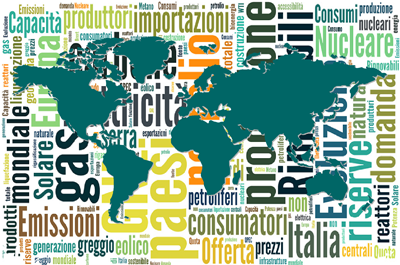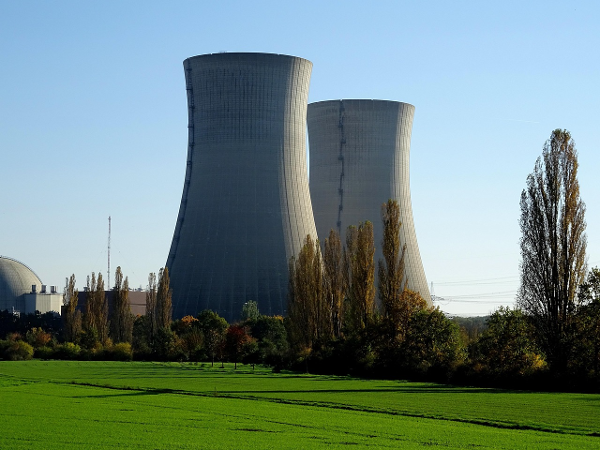Traditionally, citizens were perceived as consumers or passive recipients of energy services. Their engagement with energy systems was limited to consumption, and decision-making was confined to policymakers, industries, and large corporations. This centralised energy model contributed to environmental degradation, unsustainable practices, and a lack of public trust in energy governance and prevented the inclusion of citizens in energy-related decision-making. However, the global energy transition has brought about a fundamental shift in how we view the role of citizens in energy systems.
Energy citizenship represents a fundamental shift away from the traditional energy system paradigm, highlighting citizens' active involvement in energy systems. This concept has been thoroughly explored through the EU Horizon project DIALOGUES, which sought to operationalise, contextualize, measure, and support the frameworks, policies, and institutions needed to foster deep and inclusive energy citizenship. By actively engaging in energy systems, citizens can take on diverse roles—not only as consumers and producers but also as advocates and critical contributors to shaping energy policies.
To this end, the European Union's Clean Energy Package (CEP) establishes a legislative framework that empowers citizens by defining key roles such as active consumer, renewables self-consumer, Citizens Energy Communities, and Renewable Energy Communities (REC). Through this framework, citizens can influence energy policy, generate renewable energy, and actively participate in local energy projects, fostering a more decentralised and inclusive energy landscape.
Several vital drivers influence citizens' engagement in the energy transition. These drivers include socio-political, economic, environmental, psychological, and ethical dimensions. Each dimension offers different incentives and barriers for citizens to participate actively in the energy transition. A more detailed analysis can be found in our recent open-access article, "Empowering energy citizenship: Exploring dimensions and drivers in citizen engagement during the energy transition", published in the Journal of Energy Reports.
Socio-Political Drivers: The concepts of energy justice and democratic governance play a critical role in fostering energy citizenship. Citizens are more likely to engage in energy-related activities if they feel that the decision-making process is inclusive, transparent, and fair. Social acceptance of renewable energy projects and equitable distribution of energy resources are vital for sustaining public support. Initiatives that promote local energy communities allow citizens to take ownership of energy systems and ensure that the benefits of renewable energy are shared fairly.
Economic Drivers: Economic factors, including financial incentives, are essential for citizens to participate in the energy transition. Incentives involve subsidies for renewable energy installations, feed-in tariffs for self-produced energy, and financial support for efficiency improvements. However, economic barriers, such as high upfront costs for renewable technologies and inadequate policy support for prosumers, must be addressed to make energy citizenship more accessible. Engaging citizens as prosumers—individuals who both produce and consume energy—can further democratise the energy system, fostering energy independence and self-sufficiency.
Environmental Drivers: Environmental awareness is another powerful motivator for citizen engagement in energy transition. Many citizens are driven by the desire to combat climate change and protect the environment for future generations. Initiatives that increase awareness and educate the public about the environmental benefits of renewable energy and energy conservation can further enhance this motivation. The manuscript highlights the correlation between pro-environmental values and citizen participation in renewable energy projects, underscoring the importance of environmental consciousness in fostering energy citizenship.
Psychological Drivers: Personal values, beliefs, and attitudes towards energy and the environment influence how citizens engage in the energy transition. Psychological drivers such as responsibility, curiosity about new technologies, and social pressure can motivate individuals to adopt more sustainable energy practices. Empowering citizens with knowledge and fostering a sense of ownership over energy systems can enhance their willingness to engage in energy-related activities. Moreover, citizens who feel competent in making a difference are more likely to participate in energy governance and collective actions.
Ethical Drivers: Ethical considerations, including social norms, fairness, and inclusivity, are crucial for the success of the energy transition. Energy citizenship must be inclusive, ensuring that all citizens -regardless of socioeconomic status, gender, or ethnicity- can participate in and benefit from the energy transition. Ethical drivers also emphasise the need for policies that promote energy justice, ensuring that vulnerable communities have access to affordable, clean energy.
The energy transition requires a collective effort, and citizens are at the forefront of this transformation. By adopting energy-efficient technologies, reducing their carbon footprints, and participating in renewable energy projects, citizens can significantly reduce greenhouse gas emissions and promote sustainability. Furthermore, citizens can advocate for policy changes that support the energy transition, ensuring that energy systems are more equitable and resilient.
One of the most powerful ways citizens can contribute to the energy transition is by forming or joining energy communities. These communities enable citizens to pool resources, share renewable energy, and collaborate on energy-related projects. By working together, citizens can contribute to creating decentralised energy systems that are more democratic, sustainable, and responsive to local needs. Energy communities also provide a platform for citizens to voice their concerns and preferences, ensuring that energy policies reflect the public's needs and values.
Empowering citizens to participate actively in the energy transition is essential for achieving a sustainable and just future. Considering various dimensions and drivers of energy citizenship highlights the need for policies supporting citizen engagement in energy systems. By fostering energy justice, providing financial incentives, raising environmental awareness, and promoting inclusivity, we can create an energy system that is sustainable but also democratic and fair. Citizens are not just passive consumers but agents of change, capable of driving the energy transition towards a more sustainable and just future.
Mehmet Efe Biresselioglu is Professor of Energy Policy and Director of Sustainable Energy and Climate Policies Research Centre (SENLAB) at Izmir University of Economics, Turkey




















